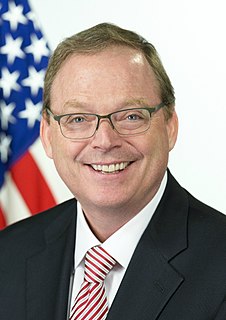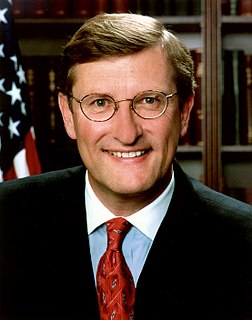A Quote by Kevin Hassett
Liberalized trade - in broadly multilateral, regional, or bilateral agreements - is a key ingredient in the recipe for prosperity... An absolute prerequisite for long-term economic growth is full participation in the global economy and trading system.
Related Quotes
The government must nurture an eco-system where the economy is primed for growth; and growth promotes all-rounddevelopment. Where development is employment-generating ; and employment is enabled by skills. Where skills are synced with production; and production is benchmarked to quality. Where quality meets global standards; and meeting global standards drives prosperity. Most importantly, this prosperity is for the welfare of all. That is my concept ofeconomic good governance and all round development.
The way the textbook works is you have gains from trade that should be distributed across all the trading partners. As soon as one bad actor like China massively cheats, they win at the expense of us; they win at the expense of Europe, and over time, it threatens the entire integrity of the global financial system and the global trading system.
Long-term economic growth depends mainly on nonmonetary factors such as population growth and workforce participation, the skills and aptitudes of our workforce, the tools at their disposal, and the pace of technological advance. Fiscal and regulatory policies can have important effects on these factors.



































